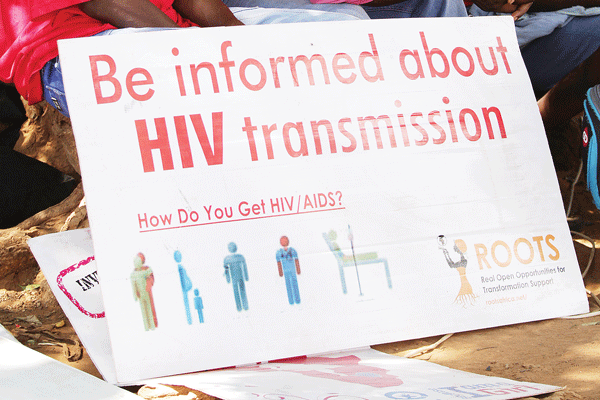
Health ministers meeting in Victoria Falls at the 67th World Health Organisation (WHO) African Region summit, which ended yesterday, have adopted a five-year framework to fight Sexually Transmitted Infections (STI).
BY XOLISANI NCUBE
WHO official, Felicitas Zawaira told delegates that the implementation of the global strategy was behind schedule in Africa and called for urgent action to commence implementation.
Zawaira said the impact of STIs on the lives and health of the people were many and severe and could lead to other long-term public health problems.
“These include foetal and neonatal mortality, risk of cervical cancer and infertility and facilitation of sexual transmission of HIV,” Zawaira said.
In the strategy, the ministers agreed to end STIs as a public health problem by 2030. It was agreed that in-between, 30 out of 47 African member states must establish STI surveillance systems, provide annual reports of their STI situation and screen at least 95% of pregnant women for HIV and syphilis by 2021 among others.
“The goal of the implementation framework is to contribute to the end STIs as major public health problems by 2030 in the African Region,” Zawaira said.
The interventions proposed include establishing enabling policy environments for implementation of STI services; strengthening STI surveillance and integrating them into national health information management and disease surveillance systems; and screening all pregnant women for STIs and HIV.
- Chamisa under fire over US$120K donation
- Mavhunga puts DeMbare into Chibuku quarterfinals
- Pension funds bet on Cabora Bassa oilfields
- Councils defy govt fire tender directive
Keep Reading
Although Zimbabwe has made strides in testing of pregnant women for STI and HIV, the country was still grappling with new infections largely driven by behaviour change and multiple sexual partners. Zimbabwe, like many African states, faces challenges in ensuring equitable access to STI prevention and treatment services by all especially vulnerable groups such as adolescents and women as well as sustainable financing of STI services.
The ministers agreed to integrate STIs treatment into mainstream programmes such as reproductive, maternal and child health and targeting of interventions to adolescents, high risk groups, the vulnerable and the youth.
The delegates stressed the need to address antimicrobial resistance, implications for treatment failures, rising treatment costs and increasing disease burden as well as capacity for diagnostic laboratory.
They also highlighted the high cost of the HPV vaccine, stigmatisation and lack of awareness as the major challenges encountered.
The region has for long borne the brunt of curable STIs such as chlamydia, gonorrhoea, syphilis and trichomoniasis and the viral STIs such as herpes simplex type 2 and Human Papilloma Virus (HPV) with no action at hand.











